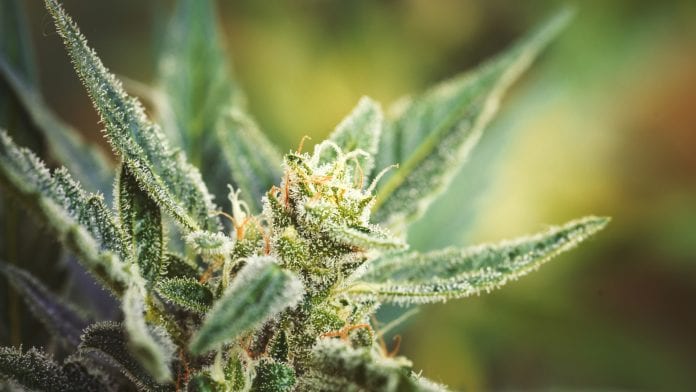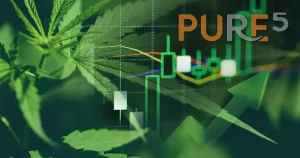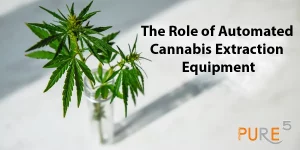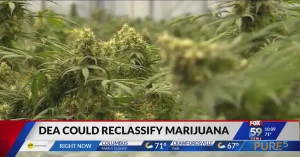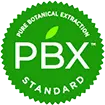PURE5™ Extraction explores how to remediate THC with its specialised THCF remediation system.
There have been many names used in accordance with hemp production compliance, for example, ‘T-Compliant’ which means that the total levels of the THC in the product are below the compliant level of 0.3% or 0.2%. The term ‘T-Free’ started to pop up in relation to the use of new technologies that allow for the complete removal of THC from the cannabis oil. In general, this is called the ‘remediation process.’
The T-Compliant status of a product can be achieved by simple dilution of the starting extract, whereby the THC gets diluted to compliance levels, however, this is not a real remediation process. The most commonly used THC remediation technologies convert THC into another similar molecule, or separate the THC molecules into a bucket.
Understanding different remediation processes
Currently, the most popular process of THC removal is by separation, and the most common separation technique is performed by Liquid Chromatography. This is the slowest and most cost prohibitive process since chromatography requires large capital investment (CapEx) and high operational expense (OpEx).
There are various Chromatographies by the process and resolution as example Flash (FC), Particle (CPC), Countercurrent (CCC), Column (CH), Moving Bed (MBC), Thin Film (TFC), etc.
The lowest cost, and therefore lowest resolution process, is the Flash Chromatography (FC), followed by the Moving Bed Chromatography (MBC), and the most advanced and highest in cost is the Centrifugal Partition Chromatography (CPC). The purpose of all of these processes is to isolate all chemicals by phasing them in a different sequence and draining them from multiple outlets or by time shift, so they are separated at the end.
Using Chromatography, two or more solvents are often required. Those have to be stocked and appropriate permits have to be obtained, as most of those solvents are sold under permit and are regulated. Then a need for additional solvent recovery equipment should be provisioned per solvent du to their aggressive nature and if Good Manufacturing Practice (GMP) is required, cross contamination should be monitored.
Conversion between cannabinoids when influenced by heat has been known about for years. For example, the most common conversion is the THCa to THC and CBDa to CBD. That conversion happens every time the flower is burned.
Another conversion is the decay of THC over time., As an example a study shows that THC decays by around 10% every year and is likely oxidised to CBN. This conversion is usually enzymatic with the influence of the aerial oxygen.
There are a lot of claims that through intense heat, the THC is transformed to CBN, and many people believe that this is the best option for remediation of the problematic component on a large scale. However, in that case, the loss of the CBD is so great that in most cases, it defeats the purpose. The loss of volume and active ingredients can be up to 20% to 30%.
The 5L PURE5™ THC remediation system
THC remediation by conversion, without intense heat, is a proprietary method for PURE5™, whereby THC molecules are transformed by oxidation and/or electromagnetic wave frequency influence, in to other cannabinoids. The 5L unit that PURE5™ produces only consumes 250W of energy and can convert the THC in other non-psychoactive cannabinoids with rates from 0.06% per hour to around 1.5% per hour.
Since no solvent is involved, the cost to run the 5L PURE5™ THC remediation system is only the consumed power. With a 250W system it will be 6kWh/day or $0.72 (€0.61) a day to remediate 1-2kg of material.
The 5L THC remediation unit can be connected directly after any extraction system, and process can be continued since the process flow is extraction, THC remediation, and Distillation.
A fully automated process that includes three machines would look like this:
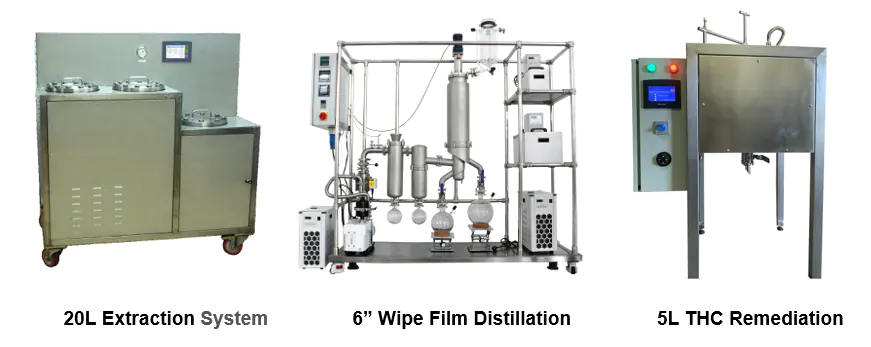
The process is extremely affordable and can create six high value products in less than 24 hours including isolated terpenes, live resin, full-spectrum concentrate, broad-spectrum concentrate, broad-spectrum distillate, and broad-spectrum crumble.
Read more information about Pure 5™ THC remediation machines.
George Stantchev, PhD
COMERG LLC
+1 602-992-0744
pure5extraction.com

